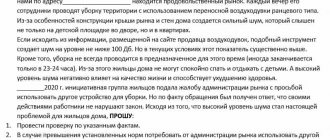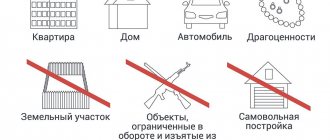ST 171 of the Criminal Code of the Russian Federation.
1. Carrying out business activities without registration or without a license or without accreditation in the national accreditation system or accreditation in the field of technical inspection of vehicles in cases where such a license, accreditation in the national accreditation system or accreditation in the field of technical inspection of vehicles is required, if this act caused major damage to citizens, organizations or the state or was associated with the extraction of income on a large scale, except for the cases provided for in Article 171.3 of this Code -
shall be punishable by a fine in the amount of up to three hundred thousand rubles, or in the amount of the wages or other income of the convicted person for a period of up to two years, or by compulsory labor for a term of up to four hundred eighty hours, or by arrest for a term of up to six months.
2. The same act:
a) committed by an organized group;
b) associated with the extraction of income on a particularly large scale;
c) has become invalid, -
shall be punishable by a fine in the amount of one hundred thousand to five hundred thousand rubles, or in the amount of the wages or other income of the convicted person for a period of one to three years, or by forced labor for a term of up to five years, or by imprisonment for a term of up to five years with a fine in the amount of up to eighty thousand rubles or in the amount of wages or other income of the convicted person for a period of up to six months or without it.
Note : Lost power.
Commentary to Art. 171 Criminal Code
1. The objective side is characterized by two forms of criminal activity.
2. Carrying out business activities without registration, i.e. when there is no entry in the Unified State Register for legal entities and the Unified State Register for individual entrepreneurs about the creation of such a legal entity or the acquisition by an individual of the status of an individual entrepreneur. Does not require state registration: a) engaging in economic activities prohibited by law (for example, illegal drug trafficking); b) concluding one-time transactions of a civil law nature (for example, occasionally carrying out small works under a contract). Fulfillment of duties under an employment contract (tutors, domestic servants, etc.), activities of members of the bar association, and private notaries are not considered entrepreneurship.
3. Federal Law of May 4, 2011 N 99-FZ “On licensing of certain types of activities” contains a list of types of activities subject to licensing, specifies which of them are licensed at the federal level, which by the executive authorities of the subjects of the federation, and also lists the types activities whose licensing is carried out in accordance with other laws and regulations.
The right to carry out activities for which a special permit (license) is required arises from the moment the permit (license) is received or within the period specified therein and terminates upon expiration of its validity (unless otherwise provided), as well as in cases of suspension or cancellation permits (licenses) (clause 3 of article 49 of the Civil Code of the Russian Federation). If a person, after the expiration of the license or its suspension, continues to engage in entrepreneurial activity, such activity should be considered as carried out without a special permit (license).
4. A necessary condition for bringing criminal liability for illegal business is the infliction of large damage to citizens, organizations or the state, or that the act committed must be associated with the extraction of large income (see note to Article 170.2 of the Criminal Code).
If major damage from carrying out business activities without registration is caused by non-payment of taxes, then liability for such activities arises only under Art. 171 of the Criminal Code and additional qualifications under Art. 198, 199 of the Criminal Code is not required.
Causing harm to health of any severity while carrying out illegal business activities is not covered by Art. 171 of the Criminal Code and requires qualification based on a set of crimes.
5. Income is understood as proceeds from the sale of goods (work, services) during the period of illegal business activity without deducting expenses incurred by the person related to the implementation of illegal business activity.
About the law
The Criminal Code deals with running a business without registration or without a license. Thus, if an entrepreneur is already a tax agent, but conducts activities without special permission, this is also punishable to the fullest extent of the law (Article 171 of the Criminal Code of the Russian Federation).
Types of business that require a license are specified in a special law adopted in this regard. For example, special permission is required when conducting banking activities, when trading in fuels and lubricants and other similar forms of doing business. This is necessary in order to protect the market from unscrupulous businessmen, since licensed activities imply special control over the actions of these enterprises.
Second commentary to Art. 171 of the Criminal Code of the Russian Federation
1. For this composition, the Resolution of the RF Supreme Court dated November 18, 2004 No. 24 (as amended on July 7, 2015) “On judicial practice in cases of illegal entrepreneurship” (hereinafter referred to as the 2004 resolution) is in force.
Criminal liability under Art. 171 of the Criminal Code is possible only if business activity can and should be registered. When a person, with the goal of generating income, is engaged in illegal activities, liability for which is provided for by other articles of the Criminal Code (for example, the illegal manufacture of firearms, ammunition, the sale of narcotic drugs, psychotropic substances and their analogues), the offense committed by him is additionally qualified under Art. 171 of the Criminal Code does not require (clause 18 of the 2004 resolution).
2. The objective side is to carry out business activities: without registration (before applying for registration, without waiting for a decision on registration or after its cancellation); without a license, when such a license is mandatory (without applying for the appropriate license; before a decision is made to issue a license; after receiving a decision to refuse to issue a license; after suspension or cancellation of a license), except for the cases provided for in Art. 171.3 of the Criminal Code of the Russian Federation.
3. The moment of the end of illegal entrepreneurship: the moment of causing major damage to citizens, organizations or the state or the moment the perpetrator extracts large-scale income.
4. Clause 12 of the 2004 resolution states: “Income in Article 171 of the Criminal Code of the Russian Federation should be understood as revenue from the sale of goods (work, services) during the period of illegal business activity without deducting expenses incurred by a person related to the implementation of illegal business activity.” .
The concept of both large damage and large income is given in the note to Art. 170.2 CC; it exceeds two million two hundred and fifty thousand rubles.
5. The subjective side is characterized by an intentional form of guilt.
6. Subject - a person who has reached the age of 16 years.
According to the Federal Law dated July 26, 2019 No. 207-FZ “On Amendments to Article 171 of the Criminal Code of the Russian Federation,” which will come into force on July 27, 2020, the objective side will be supplemented by an indication of another form of action: carrying out business activities without accreditation in the national accreditation system or accreditation in the field of technical inspection of vehicles in cases where such accreditation in the national accreditation system or accreditation in the field of technical inspection of vehicles is mandatory.
7. Qualifying characteristics are provided for in Part 2 of Art. 171 CC.
8. The actions of a person found guilty of engaging in illegal business activities and failing to pay taxes and (or) fees on income received as a result of such activities are fully covered by the crime provided for in Art. 171 CC.
Article 171. Illegal entrepreneurship
- home
- Laws and regulations
- Criminal Code of the Russian Federation
- Article 171. Illegal entrepreneurship
1. Carrying out business activities without registration or without a license in cases where such a license is required, if this act caused large damage to citizens, organizations or the state or is associated with the extraction of income on a large scale, - is punishable by
a fine of up to three hundred thousand rubles or in the amount wages or other income of the convicted person for a period of up to two years, or by compulsory work for a period of up to four hundred eighty hours, or by arrest for a period of up to six months.
2. The same act:
a) committed by an organized group;
b) associated with the extraction of income on an especially large scale, -
c) (Clause “c” has lost force on the basis of Federal Law of December 8, 2003 N 162-FZ - Collection of Legislation of the Russian Federation, 2003, N 50, Art. 4848)
shall be punishable by a fine in the amount of one hundred thousand to five hundred thousand rubles, or in the amount of the wages or other income of the convicted person for a period of one to three years, or by forced labor for a term of up to five years, or by imprisonment for a term of up to five years with a fine in the amount of up to eighty thousand rubles or in the amount of wages or other income of the convicted person for a period of up to six months or without it.
Note. (Repealed on the basis of Federal Law of July 21, 2004 N 73-FZ - Collection of Legislation of the Russian Federation, 2004, N 30, Art. 3091)
Commentary on Article 171
Object
crime is the established procedure for carrying out and licensing business activities.
On the concept of entrepreneurial activity, see the commentary to Art. 169 of the Criminal Code of the Russian Federation.
The Supreme Court of the Russian Federation in paragraph 1 of the Resolution of the Plenum of November 18, 2004 N 23 “On judicial practice in cases of illegal entrepreneurship and legalization (laundering) of funds or other property acquired by criminal means” <1>, repeating the legislative definition of entrepreneurial activity , thereby additionally emphasizing that the law enforcer must be guided by the principle of systematic legislation, according to which criminal law does not create concepts different from civil law. The main criterion for distinguishing entrepreneurial activity from other activities is its focus on systematically generating profit.
———————————
<1> Bulletin of the Supreme Court of the Russian Federation. 2005. N 1. P. 2 - 6.
Entrepreneurial activity related to the performance of functions under an employment contract (agreement), as well as the performance of duties arising from one-time civil law contracts, is not considered.
For example, in accordance with paragraph 2 of the above Resolution, in cases where a person not registered as an individual entrepreneur acquired residential premises or other real estate for personal needs or received it by inheritance or under a gift agreement, but due to the lack of need in the use of this property, temporarily leased it or leased it and as a result of such a civil transaction received income (including in a large or especially large amount), what he did does not entail criminal liability for illegal entrepreneurship. If the specified person evades paying taxes or fees on the income received, his actions, if there are grounds for this, contain signs of a crime under Art. 198 of the Criminal Code of the Russian Federation.
At the same time, it is necessary to recognize entrepreneurial activities related to the rental of residential real estate and the provision of hotel-type services to guests (for example, cleaning the premises, security, washing clothes, preparing food).
Entrepreneurs must be registered to carry out business activities. For a citizen, such an obligation follows from Art. 23 of the Civil Code of the Russian Federation, and a legal entity is subject to state registration in accordance with Art. Art. 49 and 51 of the Civil Code of the Russian Federation (on the concept of an individual entrepreneur and a legal entity, see the commentary to Article 169 of the Criminal Code of the Russian Federation).
According to Art. 11 of the Federal Law of August 8, 2001 N 129-FZ “On State Registration of Legal Entities and Individual Entrepreneurs” <1> the moment of state registration is recognized as the entry by the registering authority of the corresponding entry into the state register. This regulatory act establishes the general procedure and conditions for state registration of legal entities (during their creation, reorganization and liquidation), as well as individuals as individual entrepreneurs <2>.
———————————
<1> RG. 2001. 10 Aug.
<2> Federal laws may establish a special procedure for registering certain types of legal entities. See, for example: Federal Law of November 14, 2002 N 161-FZ “On State and Municipal Unitary Enterprises” // RG. 2002. Dec 3; Federal Law of January 12, 1996 N 7-FZ “On Non-Profit Organizations” // RG. 1996. January 24; Federal Law of December 2, 1990 N 395-1 “On Banks and Banking Activities” // Gazette of the SND of the RSFSR. 1990. N 27. Art. 357.
Current legislation provides for certain types of activities that can only be carried out on the basis of a special permit (license). A license is a special permit issued by a licensing authority to carry out a specific type of activity, subject to mandatory compliance with licensing requirements and conditions. The latter is understood as a set of requirements and conditions established by the provisions on licensing specific types of activities, the fulfillment of which by the licensee is mandatory when carrying out the licensed type of activity.
The right to carry out activities for which it is necessary to obtain a special permit (license) arises from the moment of receipt of the license or within the period specified therein and terminates upon expiration of its validity period, unless otherwise established by law or other legal acts (Part 3 of Article 49 Civil Code of the Russian Federation).
One of the main regulations establishing the procedure and types of licensing is the Federal Law of August 8, 2001 “On licensing of certain types of activities” <1>. As stated in Art. 4 of this Law, licensed types of activities include types of activities, the implementation of which may entail damage to the rights, legitimate interests, health of citizens, defense and security of the state, the cultural heritage of the peoples of the Russian Federation and the regulation of which cannot be carried out by methods other than licensing .
———————————
<1> RG. 2001. 10 Aug.
This Law does not apply to the following types of activities, the licensing procedure for which is determined by the relevant legislation: credit organizations; in the field of communications, notary, stock exchange, insurance, customs, education, etc.
Objective side
crimes are expressed in actions (inaction): 1) carrying out business activities without registration or in violation of registration rules; 2) submission to the body carrying out state registration of legal entities and individual entrepreneurs of documents containing deliberately false information; 3) carrying out business activities without a special permit (license) in cases where such a permit (license) is mandatory, or in violation of licensing requirements and conditions, subsequently in the form of major damage to citizens, organizations or the state, causal connection, or if this act is associated with generating income on a large scale.
The main issues related to the interpretation of the signs of the objective side and the qualification of the act are disclosed in the said Resolution of the Plenum of the Supreme Court of the Russian Federation of November 18, 2004 No. 23:
a) carrying out entrepreneurial activities without registration will take place only in cases where the Unified State Register does not contain a record of the creation of a legal entity or the acquisition by an individual of the status of an individual entrepreneur or contains a record of the liquidation of a legal entity or termination of the activities of an individual as an individual entrepreneur ( paragraph 1 item 3);
b) carrying out business activities in violation of the rules of registration should be understood as the conduct of such activities by a business entity that knew that during registration there were violations that give grounds for declaring the registration invalid (for example, documents and data were not submitted in full or other information necessary for registration, or it was carried out contrary to existing prohibitions) (paragraph 2, paragraph 3);
c) the submission to the body that carries out state registration of legal entities and individual entrepreneurs of documents containing knowingly false information should be understood as the submission of documents containing such knowingly false or distorted information, which entailed the unreasonable registration of a business entity (paragraph 3 p. .3);
d) carrying out business activities without a license should be understood as carrying out such activities without obtaining one or after the expiration of such a permit, as well as in cases of suspension or cancellation of the license (paragraph 1, paragraph 4);
e) carrying out business activities in violation of licensing requirements and conditions should be understood as engaging in a certain type of business activity on the basis of a special permit (license) by a person who does not comply with the licensing requirements and conditions, the fulfillment of which by the licensee is mandatory when carrying out a licensed type of activity (paragraph 2, paragraph. 4);
f) the actions of a person engaged in private medical practice or private pharmaceutical activities without the appropriate special permit (license), if they negligently caused harm to health or death of a person, must be qualified under the relevant part of Art. 235 of the Criminal Code of the Russian Federation (paragraph 1, paragraph 5).
In the event that the implementation of private medical practice or private pharmaceutical activities without the appropriate special permission (license) did not entail the consequences specified in Art. 235 of the Criminal Code of the Russian Federation, but in this case major damage was caused to citizens, organizations or the state or income was generated on a large scale or on an especially large scale, the actions of the person should be qualified under the relevant part of Art. 171 of the Criminal Code of the Russian Federation (paragraph 2, paragraph 5);
g) if, when engaged in illegal business activities, a person illegally uses someone else’s trademark, service mark, name of place of origin of goods or similar designations for homogeneous goods and in the presence of other signs of a crime under Art. 180 of the Criminal Code of the Russian Federation, what he did must be qualified according to the totality of crimes provided for in Art. Art. 171 and 180 of the Criminal Code of the Russian Federation (clause 14);
h) if, in the course of illegal business activities, the production, acquisition, storage, transportation for marketing purposes or sale of unmarked goods and products subject to mandatory marking with excise duty stamps, special stamps or marks of conformity protected from counterfeiting are carried out, committed on a large or especially large scale , the actions of a person must be qualified according to the totality of crimes provided for in Art. Art. 171 and 171.1 of the Criminal Code of the Russian Federation (paragraph 1, paragraph 15);
i) in cases where illegal business activity was associated with the production, storage or transportation for the purpose of distribution or sale of goods and products, performance of work or provision of services that do not meet the requirements for the safety of life or health of consumers, the offense constitutes a set of crimes provided for in the relevant parts Art. Art. 171 and 238 of the Criminal Code of the Russian Federation (paragraph 2, paragraph 15);
j) if illegal business activity involves unauthorized production, sale or use, as well as counterfeiting of the state hallmark, the person’s actions must be classified as a set of crimes under Art. 171, as well as under Art. 181 of the Criminal Code of the Russian Federation as committed out of selfish or other personal interest (paragraph 3, paragraph 15);
k) the actions of a person found guilty of engaging in illegal business activities and failing to pay taxes and (or) fees on income received as a result of such activities are fully covered by the crime provided for in Art. 171 of the Criminal Code of the Russian Federation. At the same time, property, money and other valuables received as a result of the commission of this crime, in accordance with clauses 2 and 2.1 of part 1 of Art. 81 of the Code of Criminal Procedure of the Russian Federation are recognized as material evidence and by virtue of paragraph 4 of Part 3 of Art. 81 of the Code of Criminal Procedure of the Russian Federation are subject to appeal to the state with the justification of the decision made in the verdict (clause 16);
l) if federal legislation excludes the corresponding type of activity from the list of types of activities, the implementation of which is permitted only on the basis of a special permit (license), the actions of a person who was engaged in this type of business activity do not contain the corpus delicti under Art. 171 of the Criminal Code of the Russian Federation (clause 17);
m) in cases where a person, with the goal of generating income, is engaged in illegal activities, liability for which is provided for in other articles of the Criminal Code of the Russian Federation (for example, illegal production of firearms, ammunition, sale of narcotic drugs, psychotropic substances and their analogues), committed by him additionally qualifications according to Art. 171 of the Criminal Code of the Russian Federation does not require (clause 18).
The crime is completed at the moment of generating large-scale income or causing major damage to citizens, organizations or the state. The corpus delicti is formal and material.
In accordance with the note to Art. 169 of the Criminal Code of the Russian Federation, large-scale damage or damage is a monetary amount exceeding two hundred and fifty thousand rubles, and especially large-scale damage is one million rubles.
On the qualitative side, income, as stated in paragraph 12 of the Resolution, is understood as revenue from the sale of goods (work, services) during the period of illegal business activity without deducting expenses incurred by a person related to the implementation of illegal business activity <1>.
———————————
<1> The Supreme Court of the Russian Federation has repeatedly changed its approach to understanding “income”. This concept is still controversial in science. See, for example: Volzhenkin B.V. Crimes in the sphere of economic activity according to Russian criminal law. St. Petersburg, 2007. pp. 207 - 210.
Major damage consists of both real property losses and lost profits. For example, unpaid amounts of state registration fees and license fees, as well as amounts of unpaid taxes and fees, provided that there is no real totality of the qualifying act of Art. 171 from Art. Art. 198 and 199 of the Criminal Code of the Russian Federation.
Subjective side
crimes are characterized by guilt in the form of direct or indirect intent. The person realizes that he is engaged in entrepreneurial activity in violation of the established procedure, while deriving income on a large scale, and desires this. Given the materiality of this crime, the perpetrator foresees the possibility or inevitability of causing major damage to citizens, organizations or the state, he wants this or consciously allows these consequences or treats them with indifference.
Subject
general crime - a sane individual who has reached the age of sixteen years. They may be, according to Art. 10 of the Resolution a person, both with and without the status of an individual entrepreneur, the head of an organization or another person who, by virtue of his official position, was directly assigned, permanently, temporarily or by special authority, the responsibilities of managing the organization, as well as the person actually performing the duties or managerial functions.
If a person (with the exception of the head of an organization or a person who is permanently, temporarily or by special authority directly entrusted with the responsibilities of managing an organization) is in an employment relationship with an organization or individual entrepreneur that carries out its activities without registration, in violation of registration rules, without special permit (license) or in violation of licensing requirements and conditions or with the submission of deliberately forged documents, then the fulfillment by this person of the duties arising from the employment contract does not contain a crime under Art. 171 of the Criminal Code of the Russian Federation (clause 11 of the Resolution).
The qualifying features of a crime are its commission by an organized group (see Part 3 of Article 35 of the Criminal Code of the Russian Federation and the commentary thereto) or associated with the extraction of income on an especially large scale.
When calculating the amount of income received by an organized group of persons, one should proceed from the total amount of income received by all its participants (clause 13 of the Resolution).
For carrying out business activities without state registration or special permission (license) or in violation of the conditions stipulated by the license, but which did not cause major damage to citizens, organizations or the state and did not entail the generation of income on a large scale, administrative liability is provided (Article 14.1 of the Code of Administrative Offenses of the Russian Federation) .
Related compounds
As an example, we can consider the provisions of the Criminal Code of the Russian Federation 171 and 159. In both cases, the perpetrator essentially commits theft. Only the first article deals specifically with business aimed at making profits, which will be of a recurring nature, and the second article deals with obtaining (illegally) property, movable or immovable, including money. At the same time, fraud can be either associated with entrepreneurship or be the result of illegal actions of an ordinary citizen.
Features of crimes
It is definitely worth noting the position of the Supreme Court in relation to entrepreneurs with a license from another entity. According to the Federal Law “On Licensing...” the validity of the permit is not fixed territorially, that is, you can organize a business in one region and obtain a license in another (if, for example, there are branches throughout the country).
However, if any region has adopted a regulatory act that contradicts the laws of the Federation or is not within the competence of these bodies, and a businessman, relying on this act, received a license, he bears neither criminal nor administrative liability.
Often, along with the classification of the crime described by Article 171 of the Criminal Code of the Russian Federation, judicial practice designates several other forms of illegal acts, such as money laundering (Article 174), use of someone else’s trademark (Article 180) and the like.
Amendments
It can be noted here that any activity that is related to obtaining a permanent income, even if the guilty person managed to make only one transaction, is illegal. However, Article 171 of the Criminal Code of the Russian Federation, as amended, provided for exemption from criminal liability if the act was committed for the first time, the citizen has no criminal record and has compensated for all damage caused or voluntarily turned over income to the state.
The changes affected several articles, but as far as exemption is concerned, it is provided for simple crimes, without aggravating circumstances (as in Article 171, Part 1 of the Criminal Code of the Russian Federation).
Regarding the amount of damage or profit made, we can say that the amount that the entrepreneur received is subject to control. This includes the expenses incurred by the businessman to organize his business.
For example, if the owner of a gas station raised a certain amount, and then purchased fuel and paid salaries to employees, then the amount of finance before expense transactions is taken into account.
Legislative aspects of entrepreneurship.
Before discussing possible penalties for unauthorized trading, it is worth knowing what the violation actually consists of. Why is trading in tents or from trays outside the law?
So, illegal trade on the street has all the signs of entrepreneurship. After all, this is an independent activity carried out with the aim of regularly receiving income from the sale of goods, services, as well as the use of property. Although the Constitution of the Russian Federation openly allows all Russian citizens to conduct business activities (Article 34), the Civil Code introduces some clarifying points.
Thus, Article 23 of the Civil Code stipulates that individuals are allowed to conduct business activities only after registering with the tax authority as a legal entity or individual entrepreneur. These actions are not required if there is an agreement on the formation of a farm and the activity is of an economic nature.
At the same time, it is allowed to conduct trade as a self-employed citizen if self-produced goods are sold. However, this also requires official registration and tax registration.
Read: Professional income tax – what is it?
Thus, the first good reason for a fine for illegal trade is the lack of registration with the Federal Tax Service, as well as the right to engage in business.
The court's decision
A conviction under Article 171 of the Criminal Code of the Russian Federation must necessarily contain in the descriptive and motivational part the reasons why it was decided that a certain activity of a citizen was entrepreneurial.
In relation to a crime, when as a result not only money was received, but also valuables or property, a sentence is passed, where the reasons for the turnover of such income in favor of the state are indicated in the descriptive and motivational part.
The position of a citizen who is brought as an accused that he did not know about the need to register or obtain a license does not matter: ignorance of the law does not excuse him from liability. Moreover, if we talk about permission to carry out certain types of activities, their list is so small that it is simply impossible to get confused. It is unlikely that the blasting manufacturer, for example, did not know that he needed to obtain a license for this.
In addition, any large companies with which a businessman plans to cooperate, when establishing partnerships in any area that is subject to mandatory licensing, require this document.
Determination of the culprit
The issue related to the subject of the crime is considered in the resolution quite objectively. The message that punishment should be applied to a specific citizen does not allow for ambiguity and interpretation.
Thus, criminal liability for illegal activities, including related offenses, is borne by the person who, in one way or another, was appointed on a permanent or temporary basis as the head of the entire enterprise, including branches and representative offices (Article 171 of the Criminal Code of the Russian Federation with commentaries). In simple terms, only the most important person is brought forward as the accused.
Employees working at this enterprise and carrying out instructions from its head are not responsible for the illegal activities of the head.
Case studies
Example 1
Citizen K. had been selling seasonal fruits and vegetables for a long time at one of the high-rise buildings in a residential area, but he did not have registration as an individual entrepreneur, and, therefore, he did not pay taxes. When this fact was established, K. was held liable under Article 14.1 of the Code of Administrative Offenses of the Russian Federation for conducting business without registration, which did not result in major damage. As evidence of illegal business, testimonies were received from persons who periodically bought fruits and vegetables from K., booklets and leaflets about the sale of products were included, which K. hung around the area in order to increase sales, documents and explanations were received from persons where K. purchased products, which he subsequently sold.
Special products
With regard to alcohol and cigarettes, the legislator has provided for punishment for the circulation of such goods without special marking in the form of excise stamps. In this case, a large size will be a volume of 100 thousand rubles, and a particularly large one will be 1 million rubles.
If an entrepreneur, knowing about the need to label the products of distilleries and tobacco factories in this way, does not do this, he faces punishment:
— fine up to 500 thousand rubles. (800 thousand rubles for a particularly large size);
— forced labor for up to 3 years (up to 6 years, respectively);
- colony, term - up to 3 years with a fine of up to 120 thousand rubles. (6 years and 1 million for a particularly large amount).





